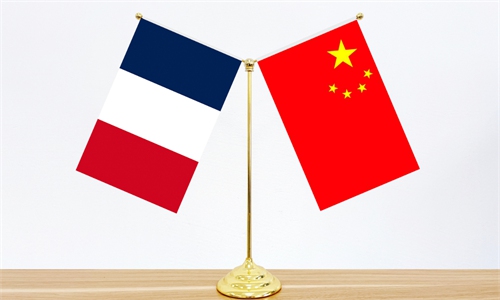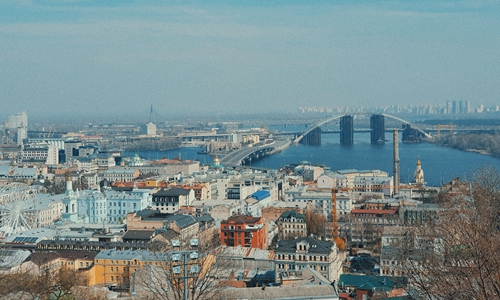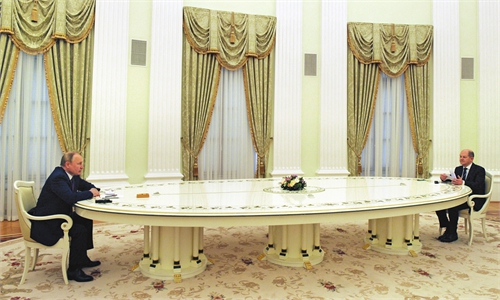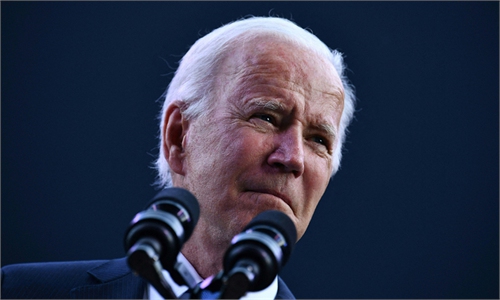Ukraine ‘invasion’ day passes peacefully, defies ‘war hype’
Kremlin shows composure, toughness in managing situation: expert
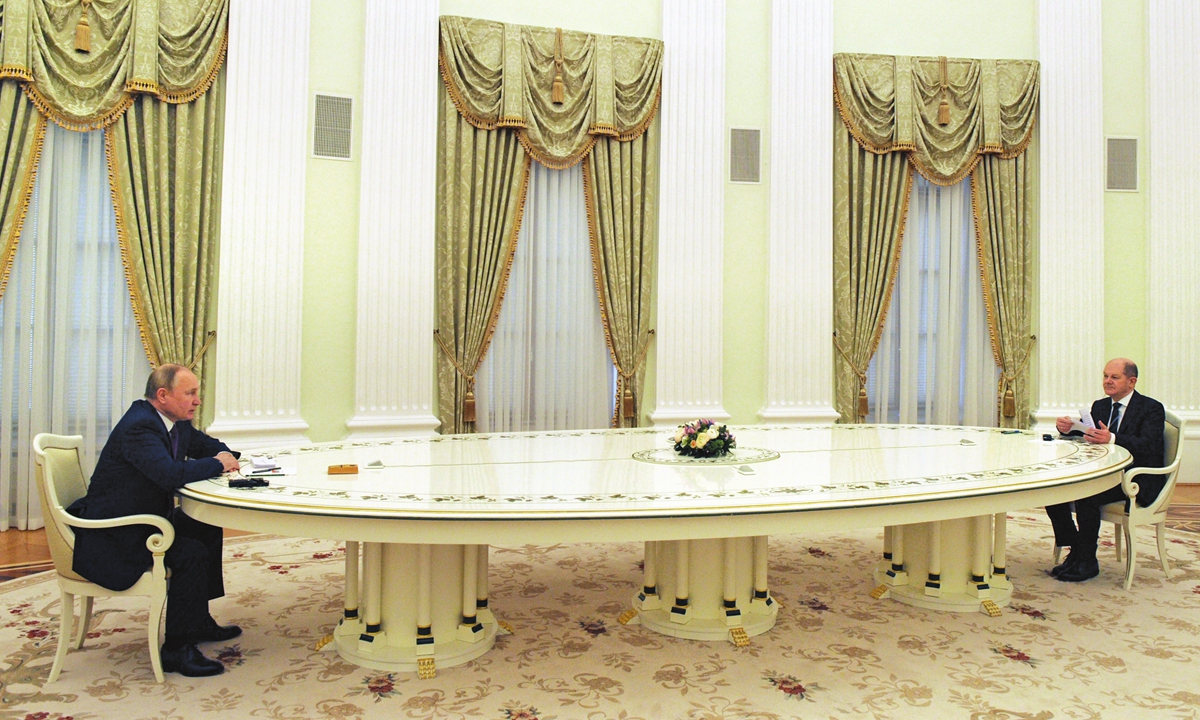
Russian President Vladimir Putin (left) and German Chancellor Olaf Scholz meet on Ukraine at the Kremlin, in Moscow, on February 15, 2022. The Kremlin earlier confirmed a pullback of some Russian forces from Ukraine's borders but said the move was planned and stressed Russia would continue to move troops across the country as it saw fit. Photo: AFP
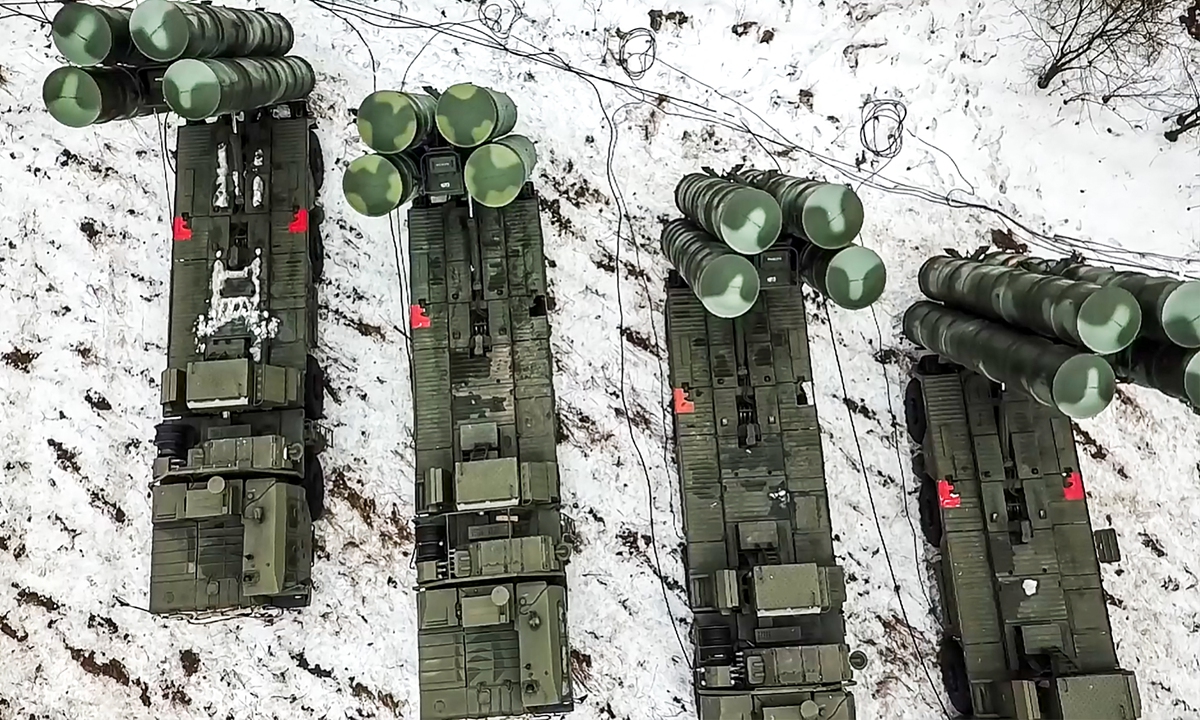
Combat crews of the S-400 air defense system taking up combat duty during joint exercises by Russia and Belarus on February 9, 2022 which center around "suppressing and repelling external aggression" amid Western claims that Moscow is plotting a major escalation of the conflict in Ukraine. Photo: AFP
Although the US previously claimed that Russia planned to attack Ukraine on Wednesday, the day passed peacefully with the recent partial pullback of Russian troops from some border areas, although Washington and NATO said they did not see the pullback and are insistent on their claims of imminent war to prevent an easing of tensions.
Observers pointed out that Russia maintained its strategic composure in dealing with this highly sensitive issue despite some Western politicians spouting war rhetoric to hype war risks and media disinformation.
US President Joe Biden told allies that Russia would invade on Wednesday. Western media, citing officials, even reported the exact attack time is 3am in the early morning.
British Prime Minister Boris Johnson brought the topic to Chinese social media platform Sina Weibo on Tuesday, claiming they are at the brink of a cliff and urged Russia to avoid making disastrous decisions, in Chinese. The account of the Russian embassy to China denied any major military action, also in Chinese, and said Downing Street's statement on the "Russia invasion" is information terrorism.
Ahead of the "invasion time" set by the West, Russia on Tuesday announced the withdrawal of troops near the Ukraine borders after completing joint drills with Belarus. The exercises were used by the West to demonstrate Russia's military buildup as an "invasion preparation."
Russia mocked the claims with Kremlin spokesperson Dmitry Peskov saying that Ukrainians who believe such things are welcome to set an alarm and stay up, Russia Today reported. Peskov previously joked that Putin sometimes asks him - likewise in jest - if the exact time of the "invasion" has been published in the Western press.
Commenting on the nonexistent "invasion," Russian Foreign Ministry spokesperson Maria Zakharova wrote on Telegram that "February 15, 2022 will go down in history as the day of the failure of Western war propaganda. Humiliated and destroyed without firing a shot."
Yury Tavrovsky, head of the "Russian Dream-Chinese Dream" analytic center of the Izborsk Club, told the Global Times on Wednesday that the withdrawal ahead of the predicted invasion puts into question the effectiveness of US and NATO intelligence services. Russia completely took control of the situation and decided whether to bring in or withdraw troops.
Having achieved an advantage in offensive weapons, primarily hypersonic missiles, Putin got the opportunity to talk to Biden on equal terms and not "blink first," Tavrovsky said, adding that Russia has converted its military-technical achievements into geopolitical ones, and in the foreseeable future, the conversation with the West will be much tougher, Tavrovsky said.
Russia's deputy UN envoy Dmitry Polyansky, earlier commenting on White House national security adviser Jake Sullivan's speculation of an alleged Russian invasion at any time, pointed out the US tactic is a clear "panic campaign," TASS reported.
The rhetorical bombast was mostly conducted by American politicians, as it wants a war most. The US is eager to use European anxiety over the Russian presence to fan the hysteria and bind Europe tightly to the US' anti-Russia chariot by touting the "Russia threat," Yang Jin, an associate research fellow at the Institute of Russian, Eastern European and Central Asian Studies under the Chinese Academy of Social Sciences, told the Global Times on Wednesday.
Neither Russia nor Europe want to escalate the situation, and the Kremlin has engaged with NATO states diplomatically to control the situation while maintaining a reasonable military presence to show the Russian stance amid the possibility of Ukraine joining NATO, experts said.
Tavrovsky noted that Russia has lost practically nothing during the three months of the crisis but won a lot, imposing its agenda on the West and forcing Western leaders to line up for meetings with Putin and Foreign Minister Sergey Lavrov.
Putin on Tuesday met with German Chancellor Olaf Scholz, after Western leaders Macron and Johnson. Putin told media after the meeting that he does not want to engage in war, TASS reported. Negotiations should lead to "an agreement to provide equal security for everybody, including our country," Putin said.
Scholz said diplomatic options to avoid war have not been exhausted and the news that some Russian troops are withdrawing from the border area is a good sign.
Putin repeated that NATO's expansion must not compromise Russian security. According to Putin, Russia will not be satisfied with the assurances that Kiev will not join the alliance in the near future because it must be considered what NATO would do "the day after tomorrow."
Victor Larin, an academician and principal researcher at the Russian Academy of Sciences, told the Global Times that many Russian politicians have lost their former illusions about the decency of the West, and today they do not believe the words of Western politicians. That is why the Russian leadership now requires Western leaders to put all their proposals and promises on paper.
Russia has finally shown itself to be a great power that demands respect for its interests and urges other powers to recognize these interests, the expert said.
Alert to troublemaker
After Russia announced the troop withdrawal, Biden said the withdrawal was not verified by the US and Russian attack in Ukraine is "still very much a possibility," france24 reported.
Chinese Foreign Ministry spokesperson Wang Wenbin said at Wednesday's routine press briefing that the US has been playing up the threat of war and creating an air of tension. This has gravely impacted the economy, social stability and people's lives in Ukraine, and added obstacles to advancing dialogue and negotiation between parties concerned.?
It is exactly the persistent hyping and dissemination of disinformation by some in the West that has added more turbulence and uncertainty to the world already fraught with challenges and intensified distrust and division, Wang said.
Chinese President Xi Jinping, in a Wednesday phone call with Macron, stressed that related parties should stick to the general direction of political settlement of the Ukraine issue.
In addition to the US' plotting over the Ukraine crisis and hyping war, observers pointed out a trend that the US-led NATO increasingly puts China on its agenda and tries to involve China into the Ukraine crisis. NATO Secretary General Jens Stoltenberg on Tuesday said at a press conference that China and Russia, after further enhancing ties through a joint statement signed ahead of the Beijing Winter Olympic Games, are "authoritarian powers" that do not share their values.
Washington is also mobilizing the Quad, which primarily serves the US' Indo-Pacific Strategy, to target Russia. Amid the Western trend of confronting China and Russia together, the two countries are on high alert to real troublemakers and their strategic coordination is based on such a shared stance, observers said.
Tavrovsky said the new level of strategic partnership demonstrated during the latest Xi-Putin meeting is a big step forward in curbing the arrogance of the West. Larin believes the two countries should unite efforts in the information war that the West has become adept in, while Yang said it is crucial to set the agenda actively on topics the West frequently attacks, such as affairs related to China's Xinjiang and Hong Kong and the Taiwan question, Chinese experts said.
Just as Russia has gained experience in long rivalry against the West, China learns lessons from confrontation with the US and knows how to manage relations with world powers and defend its national interests, Chinese experts said.

